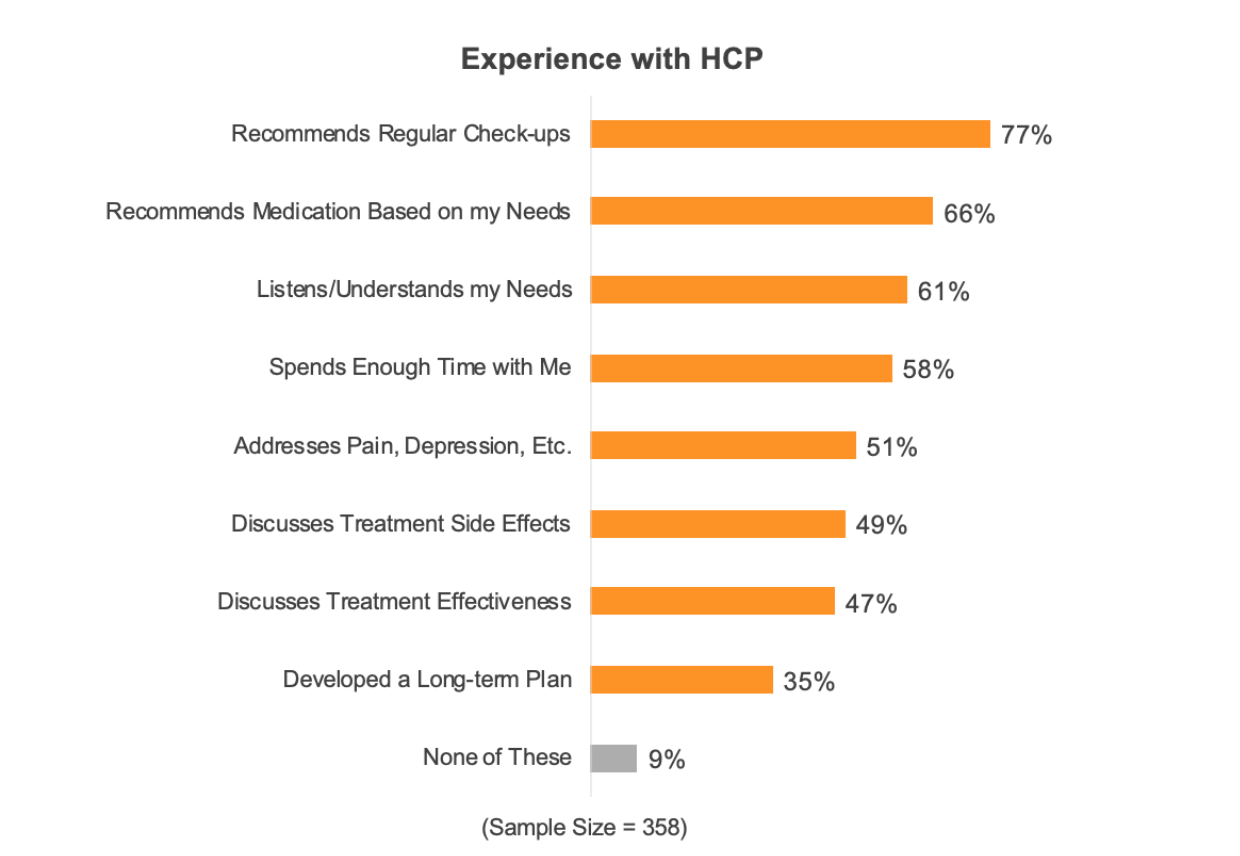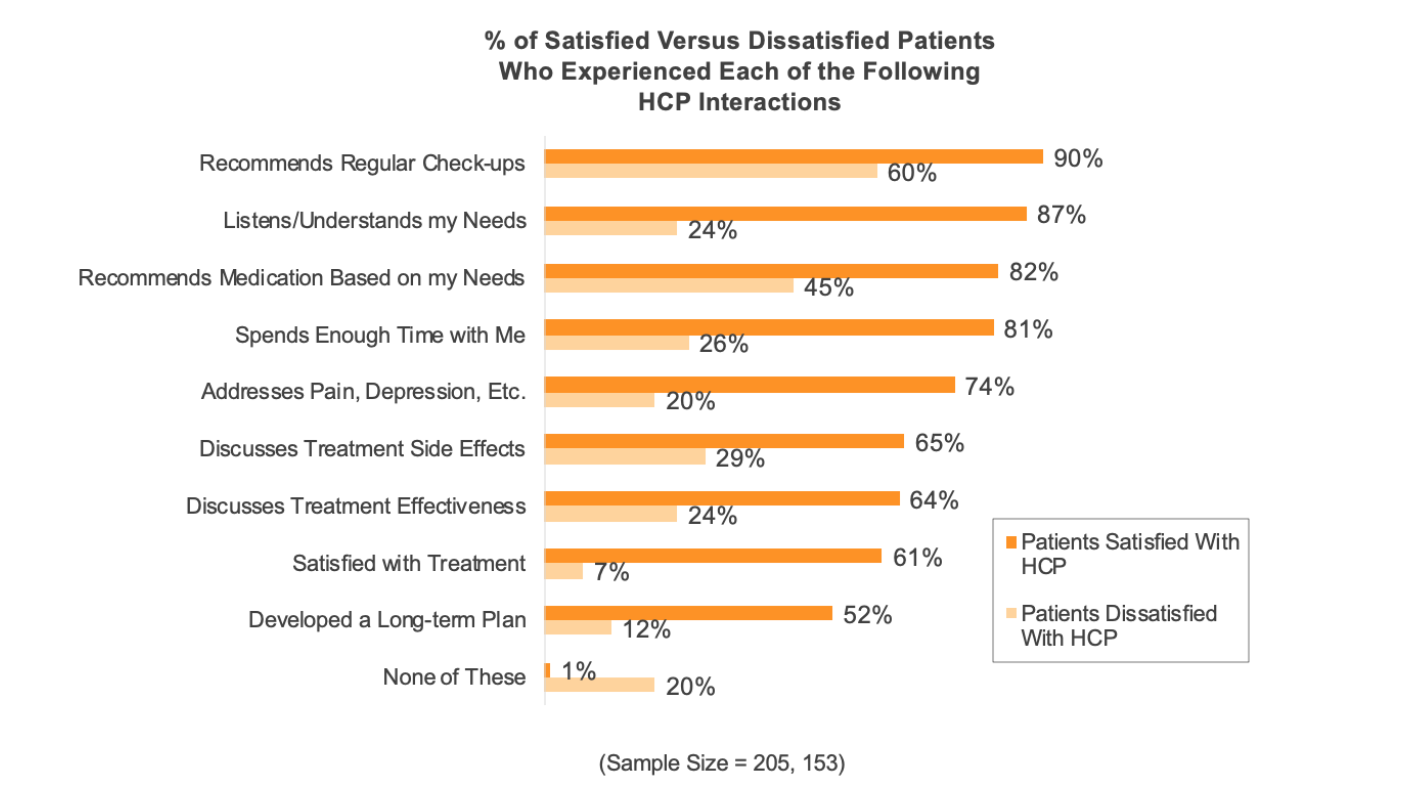Session Information
Date: Friday, November 6, 2020
Title: Patient Outcomes, Preferences, & Attitudes Poster I: RA, Spondyloarthritis, & OA
Session Type: Poster Session A
Session Time: 9:00AM-11:00AM
Background/Purpose: Understanding patient satisfaction with their rheumatologist and the drivers of satisfaction is crucial to improving doctor-patient interactions, helping patients get on the right treatment path to help slow progression and improving health outcomes overall.
Methods: In January 2020 an email invitation to an online survey was sent to US members of myRAteam, a social network of over 122,000 members. In total, 374 US members completed the 21-question survey regarding the HCP-patient experience.
Results: Over half of RA patients surveyed are satisfied with their HCP (57%) and 78% feel they are able to have meaningful conversations. The majority feel they’re HCP is doing a good job of recommending regular checks-ups (77%) and medications (66%) based on the patient’s unique needs. Slightly less than two-thirds feel they’re doctor listens to them and truly understands what they are going through (61%) or spends enough time with them (58%). While biggest obstacles to managing RA are pain (80%), relentless fatigue (72%) and depression/anxiety (51%), only 51% of patients feel their HCP addresses these symptoms. Further, only 37% are satisfied with their current treatment and only 49% feel their HCP is adequately discussing potential side effects and 47% treatment efficacy. And only 35% feel their HCP has developed a long-term plan for treating this progressive disease. There is a significant delta in experiences among those who are satisfied versus dissatisfied with their HCP. 61% of satisfied patients feel their treatment is working versus only 7% who are dissatisfied with their HCP. 87% of satisfied patient feel their HCP listens to and understands them versus 24% of dissatisfied patients. Likewise, 81% of satisfied patients feel their HCP spends enough time with them versus 26% among dissatisfied patients. 74% of satisfied patients feel their doctor addresses symptoms like pain and depression versus 20% of dissatisfied patients.
Conclusion: Understanding the needs of RA patients provides significant opportunities for rheumatologists to better support and educate their patients. This includes offering a stronger recommendation on treatment path based on the patient’s specific needs and goals, and specific information on diet/exercise approaches. It also means listening to patient concerns and addressing the mental health aspects of RA including pain, depression and fatigue, and not just disease progression.
To cite this abstract in AMA style:
Schneider B, Peacock E. Understanding the Rheumatologist-Patient Relationship in Treating Rheumatoid Arthritis [abstract]. Arthritis Rheumatol. 2020; 72 (suppl 10). https://acrabstracts.org/abstract/understanding-the-rheumatologist-patient-relationship-in-treating-rheumatoid-arthritis/. Accessed .« Back to ACR Convergence 2020
ACR Meeting Abstracts - https://acrabstracts.org/abstract/understanding-the-rheumatologist-patient-relationship-in-treating-rheumatoid-arthritis/


